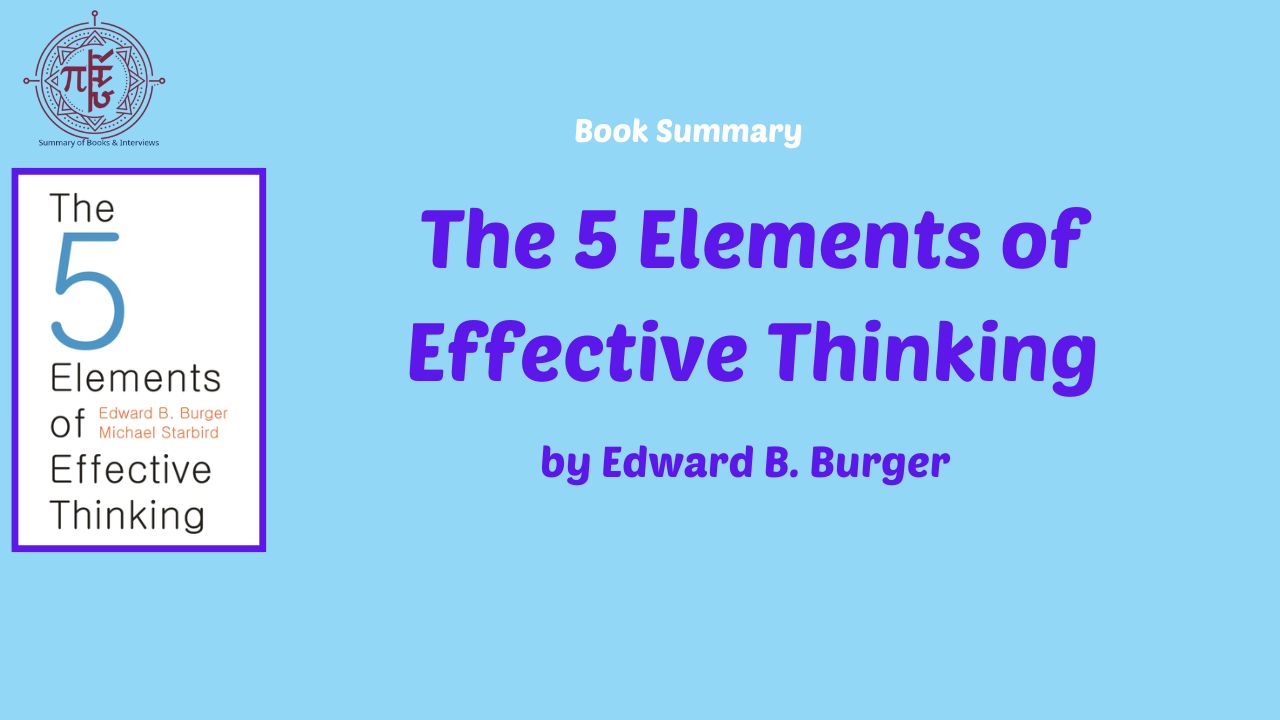
The 5 Elements of Effective Thinking#
“The 5 Elements of Effective Thinking” by Edward B. Burger and Michael Starbird is a book that explores strategies for improving critical thinking and problem-solving skills.
Here are 8 key lessons from the book:
- Embrace failure: Failure is an essential part of the learning process. Instead of fearing failure, view it as an opportunity to learn and grow. Embrace mistakes and use them as stepping stones towards improvement.
- Ask questions: Cultivate a curious mindset by asking questions. Questioning helps you explore different perspectives, uncover hidden assumptions, and gain a deeper understanding of the subject matter. Don’t be afraid to challenge conventional wisdom and seek alternative solutions.
- Think in terms of connections: Develop the ability to see connections between seemingly unrelated concepts or ideas. By making connections, you can generate new insights and innovative solutions. Look for patterns, analogies, and relationships to expand your thinking.
- Emphasize understanding over memorization: Rather than focusing solely on memorizing facts, strive to understand the underlying principles and concepts. This approach allows for flexible thinking and the ability to apply knowledge in various contexts.
- Embrace the power of simplicity: Seek simplicity in your thinking and communication. Complex ideas can often be distilled into simpler forms, making them more accessible and easier to understand. By simplifying, you can gain clarity and communicate effectively.
- Embrace the growth mindset: Adopt a growth mindset, believing that intelligence and abilities can be developed through effort and practice. Embrace challenges, persevere through setbacks, and continuously seek opportunities for growth and improvement.
- Reflect and learn from experience: Regularly reflect on your experiences, both successes and failures. Analyze what worked well and what could have been done differently. This reflection allows for continuous learning and improvement.
- Embrace the process, not just the outcome: Focus on the process of thinking and problem-solving, rather than solely on the end result. By valuing the process, you can develop a deeper understanding and appreciation for the journey of learning.
These lessons from “The 5 Elements of Effective Thinking” can help you become a more effective thinker, problem solver, and learner in various aspects of your life.
Book: https://amzn.to/45YYCCO


Comments: